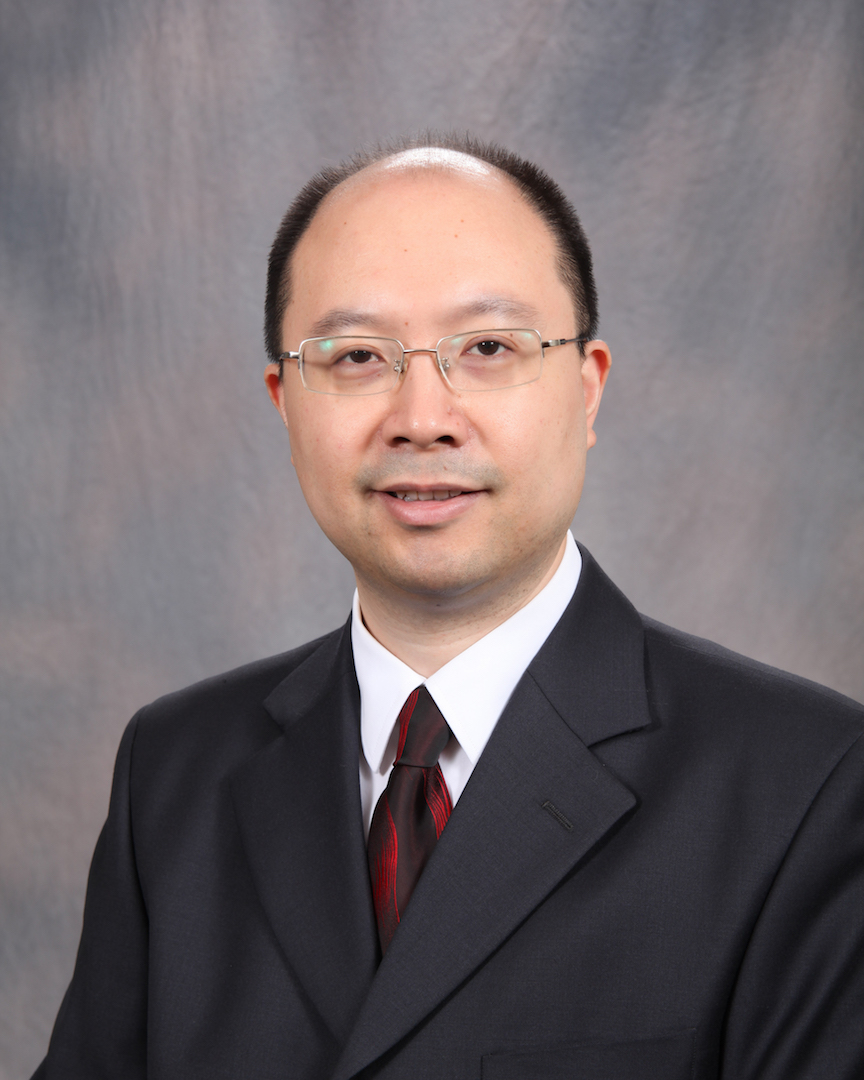Yang Shen, PhD

Associate Professor | Electrical & Computer Engineering
Contact
Center for Translational Cancer Research
3128 TAMU
College Station,
TX
77843
yshen@tamu.edu
Phone: 979.862.1694
Shen Lab
Biography
Yang Shen is an associate professor in the Department of Electrical and Computer Engineering at Texas A&M University. He is also affiliated with the Department of Computer Science and Engineering.
He received his B.E. in Automatic Control from the University of Science and Technology of China in 2002 and his Ph.D. in Systems Engineering from Boston University in 2008. In 2008–2011 he had been a postdoctoral associate with Bruce Tidor in the Department of Biological Engineering and the Computer Science & Artificial Intelligence Laboratory (CSAIL) at Massachusetts Institute of Technology where he remains a research affiliate. In 2012–2014 he had been a research assistant professor at Toyota Technological Institute at Chicago, a philanthropically endowed academic computer science institute with a close affiliation with the University of Chicago.
His research interests are in modeling, simulating, and engineering of biomolecules and biomolecular networks, with the goal of probing molecular mechanisms and modulating emergent behavior. Specific topics include protein docking, protein engineering, drug design, systems and synthetic biology, and bioinformatics. Central to these ends are the development and application of computational methods in molecular modeling, network simulation, optimization, machine learning, graph theory, and system and control theory.
Educational Background
- Ph.D., Systems Engineering, Boston University – 2008
- B.E., Automation, University of Science and Technology of China – 2002
Research Interests
-
Algorithms for modeling biological molecules, systems, and data.
- Algorithms:
- Optimization and machine learning
- Systems and control
- Applications:
- Protein docking and protein & drug design
- Systems and synthetic biology
- Omics
- Algorithms:
Awards & Honors
- Maximizing Investigators' Research Award (MIRA) for Early Stage Investigators, National Institute of General Medical Sciences, National Institutes of Health, 2017
Selected Publications
- Y Cao, T Chen, Z Wang and Y Shen, "Learning to Optimize in Swarms", Advances in Neural Information Processing Systems (NeurIPS) 32: 15018-15028, 2019.
- Y Cao, Y Sun, M Karimi, H Chen, O Moronfoye and Y Shen, "Predicting Pathogenicity of Missense Variants with Weakly Supervised Regression", Human Mutation 40(9): 1579-1592, 2019.
- M Karimi, D Wu, Z Wang and Y Shen, "DeepAffinity: Interpretable Deep Learning of Compound-Protein Affinity through Unified Recurrent and Convolutional Neural Networks", Bioinformatics 35(18): 3329-3338, 2019.
- M Karimi and Y Shen, "iCFN: An Efficient Exact Algorithm for Multistate Protein Design", Bioinformatics 34(18): i811-i820, 2018.
- H Chen, Y Sun and Y Shen, "Predicting Protein Conformational Changes for Unbound and Homology Docking: Learning from Intrinsic and Induced Flexibility”, Proteins: Structure, Function, and Bioinformatics 85(3), 544-556, 2017.
- T Oliwa and Y Shen, "cNMA: A Framework of Encounter Complex-based Normal Mode Analysis to Model Conformational Changes in Protein Interactions”, Bioinformatics 31(12), i151–i160, 2015.
- W Toy, Y Shen, H Won, B Green, RA Sakr et. al., "ESR1 Ligand-Binding Domain Mutations in Hormone-Resistant Breast Cancer", Nature Genetics 45(12), 1439–1445, 2013.
- Y Shen, "Improved Flexible Refinement of Protein Docking in CAPRI rounds 22–27", Proteins: Structure, Function, and Bioinformatics 81(12), 2129–2136, 2013.
- MD Balbas, MJ Evans, DJ Hosfield, J Wongvipat, VK Arora et. al., "Overcoming Mutation-Based Resistance to Antiandrogens with Rational Drug Design", eLife 2, e00499, 2013.
- Y Shen, MK Gilson and B Tidor, "Charge Optimization Theory for Induced-Fit Ligands", Journal of Chemical Theory and Computation 8(11), 4580-4592, 2012.
